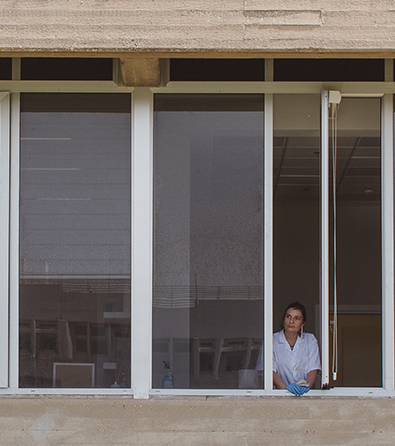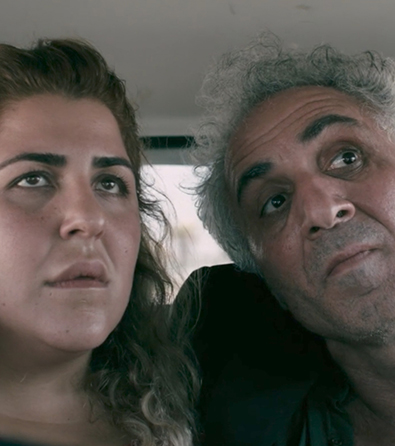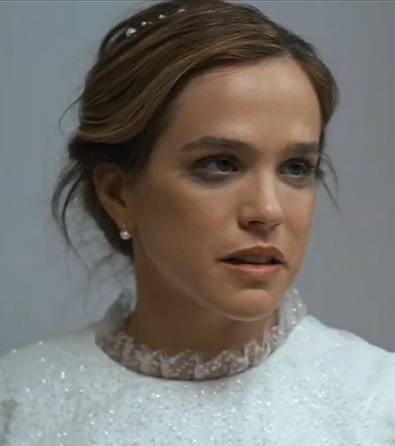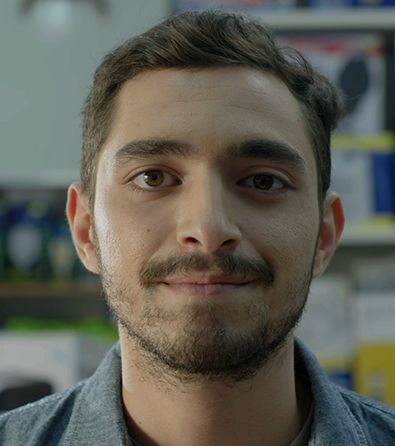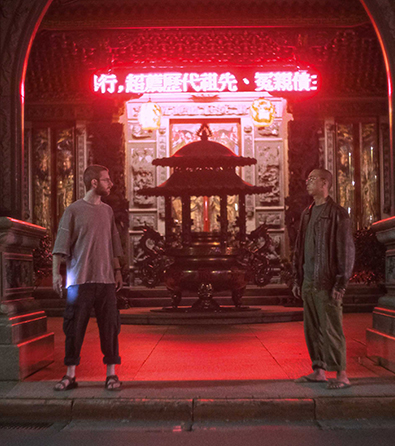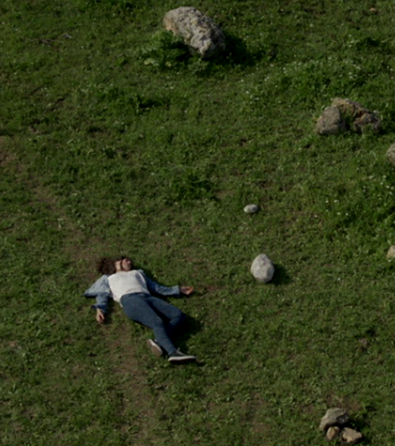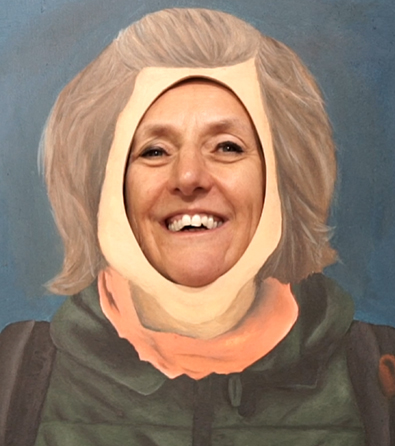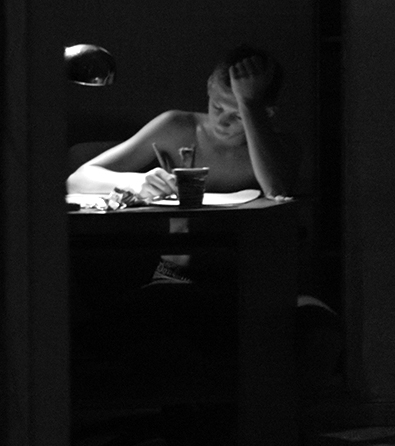The short film Greenland (17 minutes) is available at the top of the page.
* To watch this film, please approve YouTube/Vimeo cookies via the blue cookie icon at the bottom left of the screen
Greenland (2015), Oren Gerner’s short film, created as his final project in film studies at Minshar for Art, is regarded as one of the most acclaimed Israeli short films of recent years. It has garnered praise and awards and was screened at the prestigious Sundance Film Festival, despite or perhaps precisely because of its unusually modest and understated nature.
Like many recent Israeli films, both short and feature-length, Greenland cleverly fuses fiction and documentary, partly through Gerner’s choice to cast himself and his parents in the film, with each playing themselves. Furthermore, it is filmed in their real family home, intensifying the pseudo-documentary quality infusing this scripted work. Greenland was among the first Israeli films to make such a distinct use of these choices, which Gerner revisited in his excellent feature film “Africa”, released a few years later, showing a significant narrative development from his short film. Yet, there is a unique charm in this shorter, somewhat raw student project, which encapsulates so many layers and elements precisely because of its minimalist nature.
In Greenland, we witness the day Oren leaves his childhood home. The director is filmed packing his belongings and saying goodbye to his parents and the place where he grew up. This farewell offers viewers glimpses into places and moments that, while seemingly trivial or entirely ordinary at first, hold for the film’s protagonist (the director himself) a world of memories and emotions—fragments of paradise soon to be lost. Gerner’s daily interactions with his parents and their home, which takes on a role as a character in its own right, gradually unfold into a gentle, symbolic, and intricately crafted story of coming of age, masculinity, farewell, and the passage of time. It is a story that only the film itself, rather than any words written about it, can fully convey, capturing the intense emotions it evokes.
The film’s cinematic language is characterized by long, static shots, most of which are distanced from the scene, and meticulously composed frames. Alongside intentional minimalism and sparseness, the film beautifully employs lighting, particularly natural light. It seems that in addition to bidding farewell to the physical space of his home—the green yard and the rooms—Gerner is also parting with specific details tied to the place, such as the warm sunset light as it touches the bedroom curtain, the living room wall, or the fruit trees in the yard. The film uncovers the beauty in the most seemingly ordinary moments and places, infusing them with a cinematic layer of nostalgia and longing.
The film runs a mere sixteen minutes, yet it is woven with unforgettable scenes that capture small moments, infusing them with meaning and charm in a sophisticated yet unforced way. Excellent examples are the scenes featuring Oren and his father, where the theme of coming-of-age, a central thread in the film, rises to the surface. In one scene, Gerner is filmed in a long, beautiful shot, holding the ladder on which his father stands as he picks fruit from a tree. This shot perhaps symbolizes Gerner’s grasp on his father’s receding figure; there is something in the ladder that could be interpreted as a ladder to heaven, one that Gerner is not yet ready for his father to climb. In another scene, the young director and his father watch a simulation of blood flow through his father’s heart, projected on a computer screen – a visual that once again evokes themes of growth, aging, and mortality.
The film’s closing moments, in which the armchair from the opening scene reappears, are, in my view, a masterclass in symbolism and cinematic minimalism, open to multiple interpretations and analyses. Oren strikes the armchair in frustration, releasing years of accumulated dust, as his parents (in one of only two non-static shots in the film) watch him with curiosity from inside the house. The protagonist’s sense of stagnation and his struggle to move forward, mature, and let go are given here a small but precise physical expression that is amusing and sad at once, lingering with me, like the entire film, long after my first viewing.
Greenland was produced as Gerner’s graduation film for his bachelor’s degree in the Film Department at Minshar for Art.



